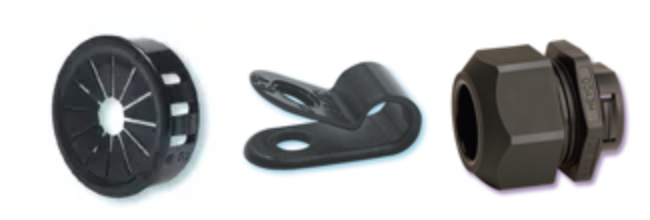 EFI has written about this topic previously in 2014; click here to read the old article.
EFI has written about this topic previously in 2014; click here to read the old article.
It may sound contradictory to mention the compound “nylon” when talking about hardware. After all, isn’t nylon basically a plastic? Well, yes, it is, but nylon has so many favorable characteristics that it’s actually a very good material for manufacturing fastener hardware.
Nylon is non-corrosive, anti-magnetic, and resistant to both vibration and friction, which is why it is such a popular fastener material for electronic applications. In fact, compared to aluminum, another material used extensively in electronics, nylon is lighter, stronger and provides high wear resistance. Nylon is also a non-flammable material, and is non-toxic and weather resistant. Because of all of these properties, nylon is often used as a material for washers and spacers in a wide range of industries.
Nylon comes in a variety of flavors and is manufactured using a variety of plastics. For example, acetal is used to increase durability while minimizing water absorption. A word of caution, though. While acetal can help minimize water absorption, it doesn’t eliminate it altogether. It’s best to avoid nylon hardware in marine applications because it does attract water molecules and can swell, compromising its performance.
Polyvinyl chloride (PVC) is used to enhance nylon hardware’s weather resistance. Polypropylene helps increase both durability and strength. With all these different property boosters, it’s clear to see why nylon hardware is so often used in electronics, telecommunications, computers and motor vehicles.
Many nylon fasteners are lightweight alternatives to standard metallic products such as washers and are used in the chemical industry because of their high resistance to harsh corrosive substances. But as bombproof as nylon can seem to be, there are some applications in addition to marine-related ones where nylon hardware should be avoided. For example, nylon doesn’t hold up well in direct sunlight and can turn brittle and yellow when exposed to the sun’s UV rays.
Still, nylon hardware is an attractive option for many fastening applications due to its versatility, flexibility, and cost-effectiveness. If you’re considering nylon hardware for your next project, contact the nylon fastener specialists here at Electronic Fasteners to discuss your specific requirements and the nylon options available.
